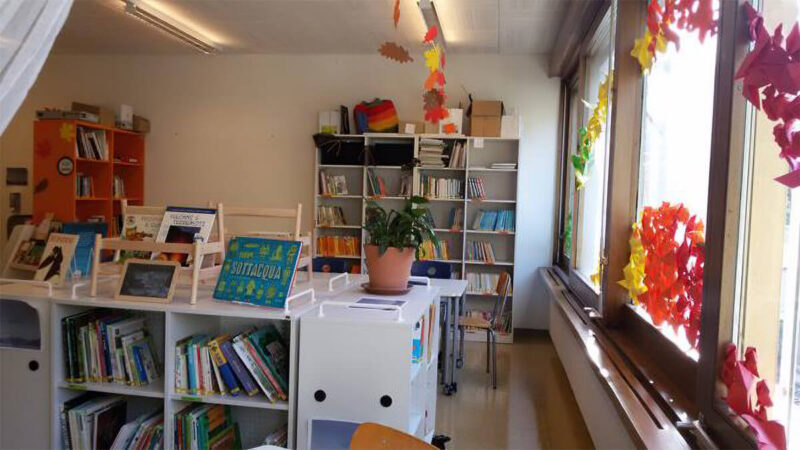The municipal school in Brissago consists of 4 classes, a large section of inclusive kindergarten, a first grade, a second and third grade and an inclusive fourth and fifth grade. Let's start here: What does it mean to be an institution that hosts two inclusive classes? We asked the director, Marina Bernasconi.
“It means welcoming children with special educational needs into classes. These pupils are accompanied and followed by special school teachers who foster their integration and shared learning with their classmates. An enriching experience that teaches us from kindergarten to be welcoming”.
Now we come to the two-classes. Where does the need for this formula come from? “Unfortunately, as is often the case in the country, the number of girls and boys tends to remain low, which is why there are two bi-classes in Brissago. But the experience of the ‘double class’ also has its advantages, both in terms of the possibility of differentiating the activities proposed and in terms of peer-to-peer exchanges, with moments of mutual help and mentoring.’
The year of the pandemic, beyond the problems it created, was an opportunity for the Brissago School to consolidate cooperation between teachers and between classes. In the last three years several innovative projects have been born.
“Thanks to the collaboration with a team of teachers and researchers from the University and High School of Education in Fribourg – continues Marina Bernasconi – we undertook a training course that led us to read the story ‘Di traverso’ in all classes, from kindergarten to fifth grade. The story follows the adventures of Delta, a curious bat, and his friend Hypsi, who flies sideways with his belly in the air. Reading the book and the activities proposed helped the girls and boys to reflect on the theme of differences and inequalities.”
After (hopefully) the pandemic, war broke out in Ukraine. A subject that cannot be ignored in school. ‘Exactly, also because the war in Ukraine has brought us three new comrades and many reflections on how much peace is a very important good’.
But innovations go beyond dramatic events. Last year, for example, ‘project days’ were introduced with the main objective of ‘rooting’ girls and boys in their territory, discovering together, outside the classroom, the characteristics of Brissago and the characters and events of past history. Not only that, she adds: ‘We set up the nursery school garden and developed educational courses on the woods and on the hens, collaborating with the InSeme group in Brissago. And in collaboration with the Patriziato, we planted Maggiociondoli and spruce trees in Naccio’.
What about this year? “The theme shared by all classes is ‘How to be a kind institution’, but maybe we will talk about it again...”.
Kindness is a theme that recalls its opposite, bullying. In the light of the news and the social issues that are often talked about, in elementary school the issue of bullying and everything negative revolves around social networks was also addressed. “Since last year – explains Veronica Marcacci Rossi, head of the Education Department – I decided, after discussing it with the Institute’s management, to anticipate information moments for children in collaboration with the cantonal police group ‘Visione giovani’. Usually these meetings are organized from the fifth grade onwards. But even though we have never had any concrete cases at Brissago school, I believe that prevention is very important in explaining to pupils the dangers of using social media and video game circles. And also to educate them to the values of real life: respect for others, education, non-violence...”. All problems, adds the municipality, which have been highlighted also due to the long periods of confinement linked to the pandemic.
Two information evenings were also organised as part of this initiative, aimed not only at families but at the whole population. “In this case – adds Veronica Marcacci Rossi – we turned to an expert on the subject, Paolo Attivissimo, who explained in the first conference what lies behind the reality of video games, while in the second, on Wednesday 26 October, he addressed the issue of the dangers that children and adolescents encounter on the internet.
Finally, it is worth mentioning the extracurricular service, which has been active for two years. The centre, managed by the Mira Association, is located in the school and offers working families the opportunity to leave their children from 7 a.m. to 7 p.m., even during the summer months. It can be accessed by children of school age, from 3 years onwards. The service is co-financed by the municipality and the canton.
